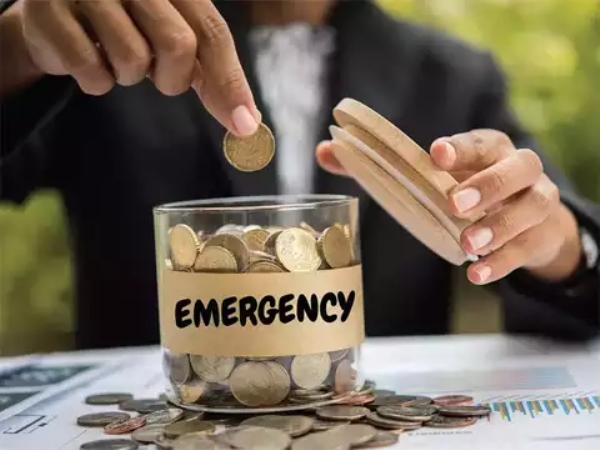Diwali & Financial Resilience: Power of Building an Emergency Fund for Indian Youth
To truly make your dreams come true, it"s essential to lay a strong financial foundation, and that starts with having an emergency fund
Total Views |
For Indian youth, creating an emergency fund can be a Diwali gift to yourself that will provide peace of mind, stability, and a safety net for unexpected financial challenges. In this article, we'll explore the significance of building an emergency fund and how it can be your best friend during unforeseen circumstances.

Diwali Dreams & Financial Realities
Diwali is a time when our dreams and aspirations take center stage. We exchange gifts, share love and joy, and make grand plans for the future. However, to truly make your dreams come true, it's essential to lay a strong financial foundation, and that starts with having an emergency fund.
What is an Emergency Fund?
An emergency fund is a savings account specifically earmarked for unexpected expenses or emergencies. It's a financial cushion that helps you stay afloat during difficult times without having to rely on credit cards, loans, or dipping into your long-term savings.
Why Indian Youth Need an Emergency Fund
1. Unpredictable Events: Life can be unpredictable. Medical emergencies, unexpected car repairs, or job loss can happen to anyone. An emergency fund provides a financial cushion to deal with these situations.
2. Debt Prevention: Without an emergency fund, you might resort to loans or credit cards when faced with unexpected expenses, leading to a debt cycle that can be challenging to break.
3. Peace of Mind: Having a financial safety net allows you to sleep peacefully at night, knowing you can handle financial setbacks without causing significant stress.
How to Build an Emergency Fund
Now that we understand the importance of an emergency fund, let's discuss how you can build one.
Step 1: Set Clear Goals
Determine the size of your emergency fund. Most experts recommend having at least three to six months' worth of living expenses saved. If you're a student or starting your career, start with a smaller goal and gradually build it up.
Step 2: Create a Budget
To build your emergency fund, you need to know where your money is going. Create a detailed budget that tracks your income and expenses. This will help you identify areas where you can cut back to save more.
Step 3: Open a Separate Savings Account
It's essential to keep your emergency fund separate from your regular savings or checking account to avoid accidental spending. Consider opening a high-yield savings account that offers a better interest rate.
Step 4: Consistent Savings
Dedicate a portion of your income to your emergency fund every month. Treat it as a non-negotiable expense, just like rent or utility bills. The key is consistency.
Step 5: Cut Unnecessary Expenses
Review your spending habits and identify areas where you can cut back. It might mean sacrificing some luxuries in the short term to secure your financial future.
Step 6: Automate Your Savings
Set up automatic transfers from your checking account to your emergency fund savings account. This ensures that you save before you can spend.
Step 7: Increase Your Income
In addition to cutting expenses, look for opportunities to increase your income. This might include taking on part-time work, freelance projects, or selling items you no longer need.
Myths about Emergency Funds
Let's dispel a few common myths about emergency funds:
1. I Can Use My Credit Card as an Emergency Fund: Relying on credit cards can lead to high-interest debt. An emergency fund is a better option to avoid interest payments.
2. I'm Young; I Don't Need an Emergency Fund: Emergencies can happen to anyone at any age. Having a financial safety net is essential, regardless of your age.
3. I Can Use My Regular Savings: Your regular savings should be for long-term goals, like buying a house or retirement. An emergency fund is separate for unexpected expenses.
This Diwali, as you bask in the warmth of family gatherings and the glow of diyas, consider taking a moment to start or strengthen your emergency fund. It's a gift to your future self, a symbol of financial responsibility, and a promise of financial security. Just as we illuminate our homes during Diwali, let's also illuminate our financial path. May this Diwali be the occasion when you pledge to protect your financial well-being by building an emergency fund, ensuring that your dreams shine brightly, regardless of life's uncertainties. Happy Diwali and happy saving!
--

